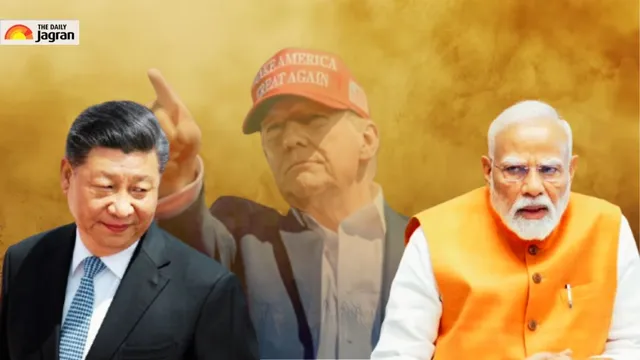- By Supratik Das
- Mon, 18 Aug 2025 12:08 PM (IST)
- Source:JND
Marco Rubio on India tariffs: The United States Secretary of State Marco Rubio has defended Washington’s decision to impose steep tariffs on Indian imports linked to Russian oil, while sparing China from similar secondary sanctions. His remarks have reignited debate in New Delhi over what many officials are calling America’s “double standards” in dealing with partners on Russian energy trade.
Speaking to Fox Business on Sunday, Rubio underlined that Beijing, despite being Russia’s largest crude oil buyer, is not being targeted because most of the Russian oil imported by China is refined and then sold into the global marketplace, particularly Europe. According to him, sanctioning Chinese refiners directly would cause serious disruption in global oil supply and push prices to new highs. “If you put secondary sanctions on a country, let’s say you were to go after the oil sales of Russian oil to China, well, China just refines that oil. That oil is then sold into the global marketplace, and anyone who’s buying that oil would be paying more for it or, if it doesn’t exist, would have to find an alternative source,” Rubio explained. He added that European countries, which continue to import refined Russian-origin fuels from China, have privately expressed unease about the idea of Washington moving against Beijing.
Rubio also pointed out that while European nations have publicly committed to reducing their dependence on Russian energy, many still rely on imports that are indirectly linked to Moscow, particularly through Chinese refiners. He admitted that imposing sanctions on Europe was not currently under discussion but acknowledged that there are “implications to secondary sanctions” if the flow of refined Russian oil is disrupted. “We heard from a number of European countries – not in press releases, but we heard from them, some concern about what that could mean,” Rubio said. The US secretary also stressed that he did not want to enter into a “tit-for-tat” with European allies but expected them to play a constructive role in pressuring Moscow.
Why India Hit With Additional Tariff On Russian Oil Imports?
While Beijing was spared, India has faced a steep tariff wall on its energy trade with Moscow. Washington initially imposed a 25 per cent tariff on Indian imports tied to Russian crude, which has now been doubled to 50 per cent. Rubio told Fox News that India’s continued purchases of discounted Russian oil were effectively “promoting Russia’s war effort” and had become a point of friction in US-India ties. He, however, acknowledged India’s vast energy requirements and dependence on affordable Russian oil supplies.
The Ministry of External Affairs (MEA) hit back at the US measures, arguing that several countries, including European allies, continue to import Russian crude. MEA spokesperson Randhir Jaiswal said, “It is highly unfortunate that the US decided to go for additional tariffs against India for actions being taken by several other countries too. India will do whatever is necessary to safeguard its national interest.” Prime Minister Narendra Modi also took a firm stand while addressing on Independence Day, vowing that New Delhi would not compromise on the interests of farmers, fishermen, and small industries impacted by the tariffs. “The farmer’s interest is our first priority. India will never compromise. I am prepared to pay the price personally, but India is prepared to protect its people,” Modi said.
This highlights the delicate balance in global energy geopolitics. The US wants to weaken Russia’s revenue streams from oil exports but is cautious about imposing measures that could spike global prices or strain relations with major powers such as China and European allies. With oil prices already volatile, continued pressure on India could add to global uncertainty, even as the US avoids a direct clash with Beijing.

